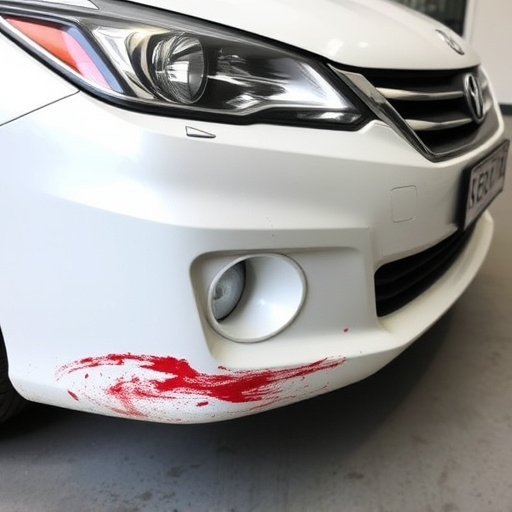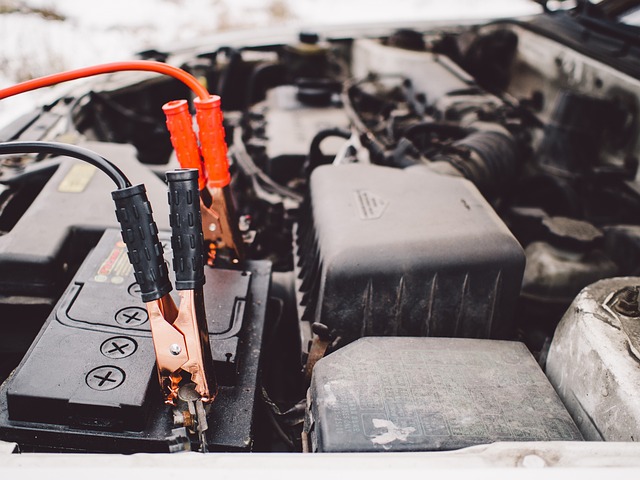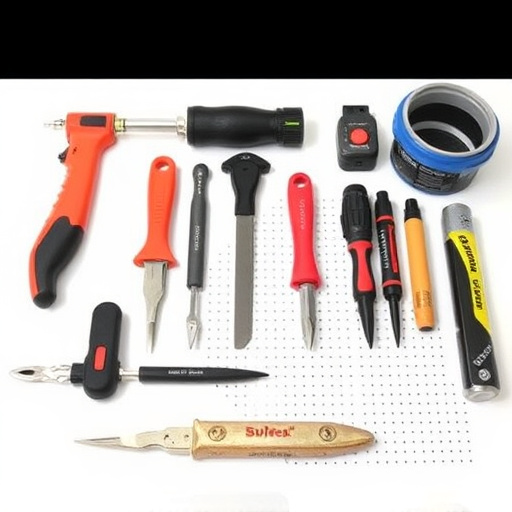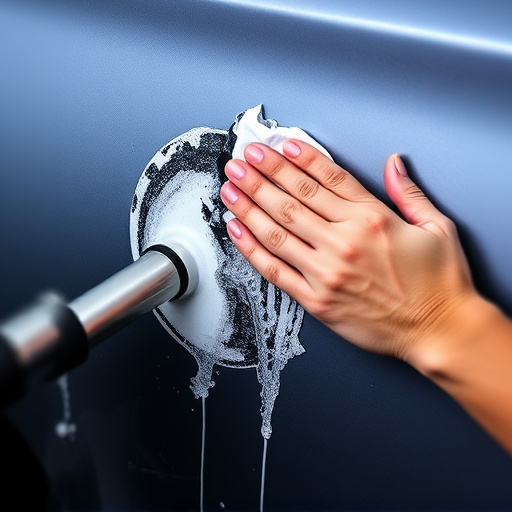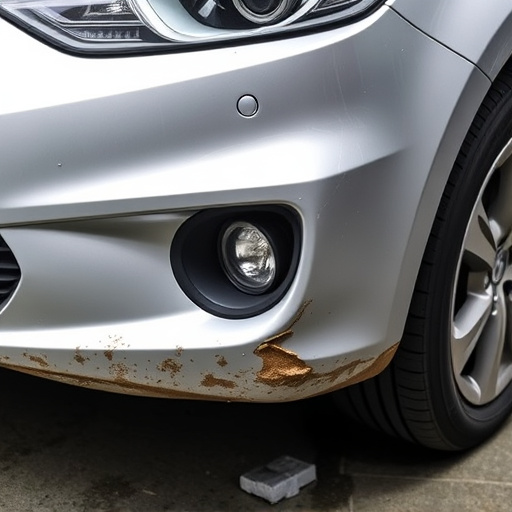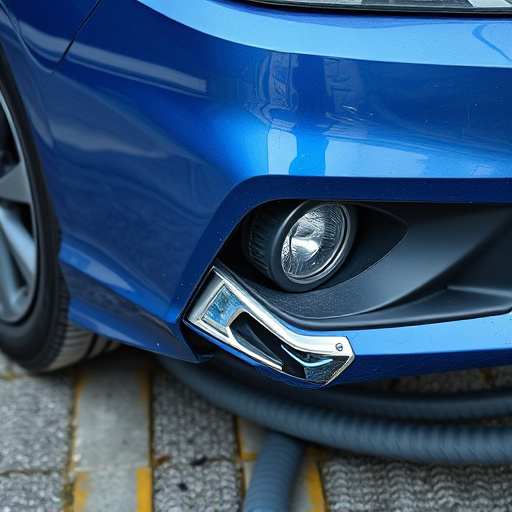Repair scheduling collisions, caused by simultaneous arrivals, delays, and increased demand, negatively impact automotive repair centers' reputations. Manual systems fail to manage complex repairs and unpredictable events effectively, leading to customer dissatisfaction. Modern scheduling software tailored for the industry is essential to reduce conflicts, enhance appointment management, and maintain client trust in a competitive market. Proactive communication and high-quality services further mitigate risks associated with these collisions.
In the fast-paced automotive industry, efficient repair scheduling is paramount. However, unexpected collisions can disrupt service flow, impacting shop reputation and customer trust. Understanding the causes of repair scheduling collisions, such as inefficient systems or miscommunication, is crucial. This article delves into the direct effects on shop credibility and offers strategies to mitigate reputational damage. From optimizing scheduling software to enhancing communication, these tactics ensure seamless operations and maintain a positive image.
- Understanding Repair Scheduling Collision Causes
- The Direct Impact on Shop Reputation and Customer Trust
- Strategies to Mitigate and Manage Reputational Damage
Understanding Repair Scheduling Collision Causes
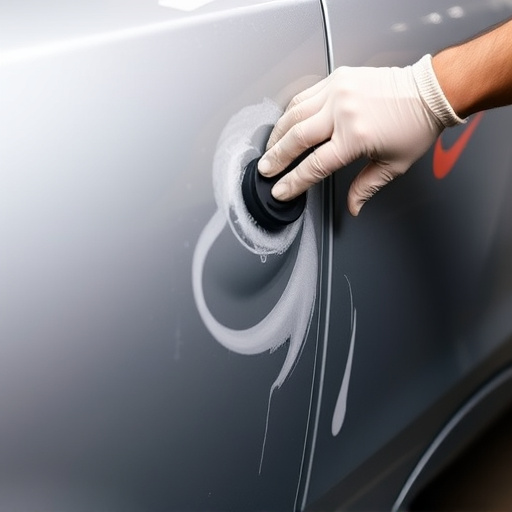
Repair scheduling collisions are a common challenge faced by collision repair centers. These occur when multiple vehicles arrive for service simultaneously or when unexpected delays arise during the repair process, leading to backlogs and missed appointments. Several factors contribute to this issue. One primary cause is the influx of customers after major accidents or natural disasters, putting immense pressure on already busy repair shops. Additionally, complex vehicle bodywork repairs, such as auto glass replacement, often take longer than anticipated due to parts availability and intricate techniques involved.
Another significant factor is the lack of efficient scheduling systems. Many collision repair centers still rely on manual processes, making it challenging to manage appointments effectively. This can result in scheduling conflicts and frustrated customers waiting excessively for their vehicles. Implementing modern scheduling software tailored for the automotive industry can significantly mitigate these issues, ensuring seamless appointment management and improved customer satisfaction.
The Direct Impact on Shop Reputation and Customer Trust
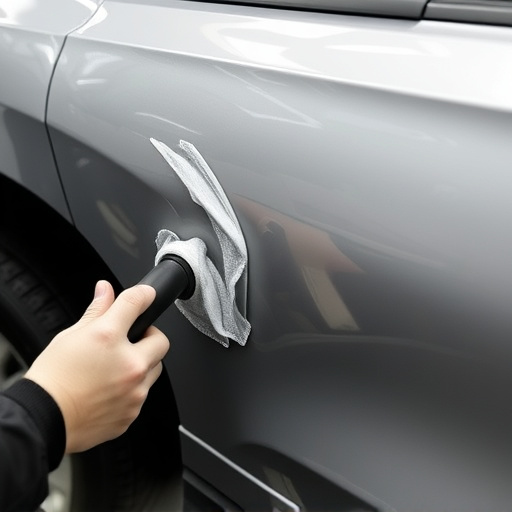
When a repair scheduling collision occurs, it can have an immediate and significant impact on a vehicle body shop’s reputation. Customers who experience delays or inconvenience due to scheduling conflicts are likely to share their negative experiences, spreading awareness through online reviews and word-of-mouth recommendations. This can lead to a loss of trust among prospective clients who may opt for services from competitors perceived as more reliable.
A shop’s reputation is its currency in the competitive automotive repair services market. Customers increasingly research and compare collision repair shops before making a decision, and a solid reputation built on timely service and customer satisfaction is essential. Repair scheduling collisions disrupt this delicate balance, forcing collision repair shops to redouble their efforts in effective planning, communication, and execution to regain and maintain client trust.
Strategies to Mitigate and Manage Reputational Damage

When a repair scheduling collision occurs, it can significantly impact a shop’s reputation, leading to lost customers and trust. To mitigate this damage, proactive strategies are essential. First, efficient communication is key; promptly acknowledge the issue, provide regular updates, and offer transparent explanations to customers. This openness can turn an adverse experience into a positive one, fostering client loyalty. Implementing robust scheduling systems, such as advanced booking software, helps prevent overlaps and delays, ensuring better customer satisfaction.
Additionally, focusing on high-quality auto body services and hail damage repair can be a powerful reputation booster. Investing in automotive restoration techniques and training ensures precise repairs, attracting customers seeking expert solutions. By prioritizing customer experience and consistent service quality, repair shops can effectively manage reputational risks associated with scheduling collisions, enhancing their standing in the market.
A repair scheduling collision, while often an unintended consequence, can significantly harm a shop’s reputation. By understanding the causes, from staff inefficiencies to customer demand spikes, and implementing strategies such as improved communication, efficient scheduling software, and proactive customer engagement, repair shops can mitigate reputational damage. Fostering trust through transparency and delivering consistent, quality service is key to bouncing back from these collisions and ensuring long-term customer loyalty.


